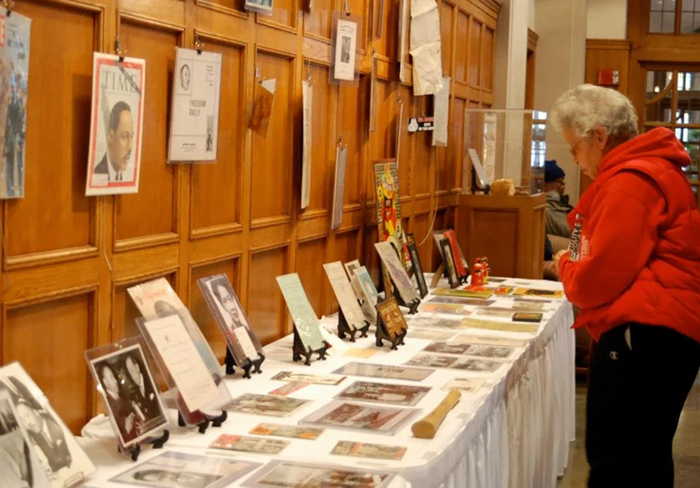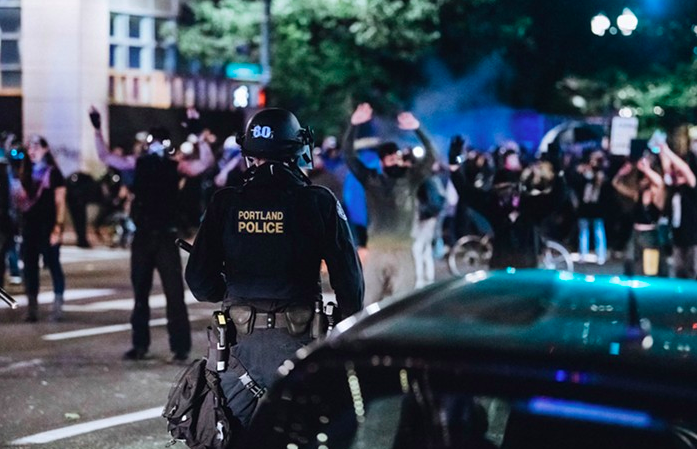
As we noted yesterday, Portland City Council is on the verge finally replacing the COAB.
You might remember the COAB, or Community Oversight Advisory Board, as the citizen body created via the city's settlement with the US Department of Justice over police abuses. It was a first-of-its-kind invention, designed to bring community members in on the process of carrying out the settlement and to have input and oversight along the way.
But the COAB was plagued by issues—not least of which was a failure of the city to properly orient members. The group gradually shrank as people dropped out, and was ultimately allowed to lapse by former Mayor Charlie Hales—putting the city close to noncompliance with the settlement. Now, the city and DOJ have a new group in mind, and it will have a lot less say in the police settlement.
Mayor Ted Wheeler, in conjunction with the US Attorney's Office, is proposing something called the Portland Commission on Community-Engaged Policing, or PCCEP (pronounced pee-sepp). The board will be between five and nine members, and share some of the COAB's duties of improving police outreach to the community, and relaying community concerns about policing to the mayor, police chief, Portland Police Bureau, and others.
But the PCCEP would also lose the influence over Portland's progress in the settlement agreement that the COAB was supposed to have. A set of proposed amendments to the settlement posted online today, if ultimately adopted, would strip the PCCEP of responsibilities such as providing "independent oversight of the settlement Agreement," as well as the duties to "independently assess the implementation" of the settlement and "provide the community with information on the agreement and its implementation."
Those duties created some of the difficulties that led to rifts in the COAB process. Members of the group frequently bristled when they felt they weren't being allowed independent oversight, and chafed under the leadership of the team of Chicago-based academics who've been tapped to evaluate the city's progress of the agreement (and whose role it was to chair the COAB).
Still, the reduction in capacities will certainly be a point of contention when Wheeler's proposal comes before Portland City Council on Thursday afternoon. While the city and DOJ have agreed to the amendments, according to Wheeler spokesperson Michael Cox, the Albina Ministerial Alliance Coalition still has concerns.
"I do expect some outcry," says Dan Handelman of Portland Copwatch, which is a member of the AMAC.
And it appears the city does as well. In a framework [PDF] for the PCCEP Wheeler's office released this week, there's a footnote that says "the City understands there is concern about the role of the Portland community in monitoring the Settlement Agreement, and updating the wider community on the status of the Settlement Agreement."
The footnote goes onto say that the city will update the community on the settlement at annual status conferences before US Judge Michael Simon, quarterly meetings with those Chicago academics, web updates, and "through other means as appropriate."
Cox says the different responsibilities between the PCCEP and the COAB are meant to avoid the kinds of pitfalls that bedeviled the first group.
"When they got into reviewing policy line by line, it turned out that the hours worked... exceeded anything that was ever envisioned," Cox says. He adds that the city envisions the group existing in perpetuity, and believes it will still have "oversight." According to the lengthy ordinance council will take up on Thursday, thats a term that's had a fraught definition between the city, DOJ, and AMAC, which met in January, February, and March to hammer out terms for a new board.
"Many of the meetings concerned the issue of whether the community engagement body should engage in 'oversight,'" the ordinance reads. "Following many discussions, the parties agreed to define "oversight" as the ability to review and make recommendations."
Cox notes: "Some also take oversight to mean additional things like monitoring the settlement. Monitoring is the responsibility of the COCL [or Compliance Officer Community Liaison, meaning that group of Chicago academics] and the DOJ."
There are some other notable differences with the PCCEP as well. They'll all be appointed by Wheeler, and will need to be approved by council, Cox says. And not all of their meetings will be public, as occurred with the COAB.
Should council approve the proposed amendments to the settlement agreement—which also pave the way for changes in police discipline policy—they'll need to be approved by Simon in a hearing later this year.


















